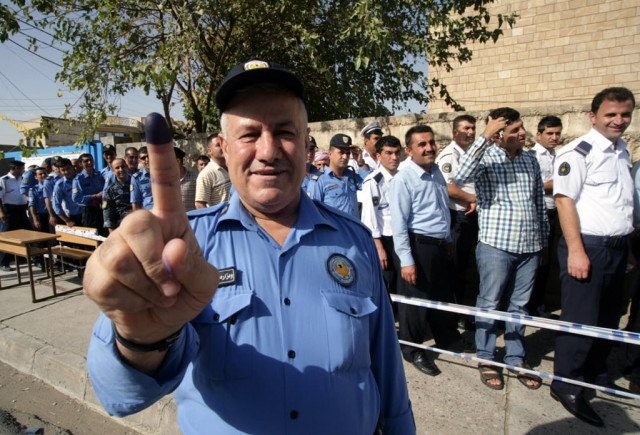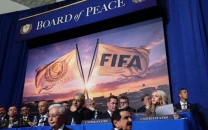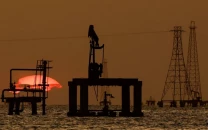Iraq's Kurds to vote amid domestic, regional tensions
In the run-up to polls, attacks on Goran supporters have left one person dead and several wounded.

In the run-up to polls, attacks on Goran supporters have left one person dead and several wounded. PHOTO: AFP
The legislative election also comes amid questions over the future of the Kurdish nation, spread across historically hostile countries that have more recently either shown a willingness to discuss Kurdish demands, or have suffered instability, allowing Kurds to carve out their own territory.
The September 21 vote is the first to be held in Kurdistan, a three-province autonomous region in north Iraq, in more than four years.
It will see three main parties jostle for position in the Kurdish parliament, with long-term implications both domestically and farther afield.
The Kurdistan Democratic Party (KDP) of regional president Massud Barzani is widely expected to garner the largest number of seats.
But the Patriotic Union of Kurdistan, which is in government with the KDP, faces a challenge from the Goran faction in its own backyard as it struggles with leadership questions as its long-time chief Jalal Talabani, the Iraqi president recovers in Germany from a stroke.
"This election may be even more important (than previous ones) for the Kurdistan region because if the KDP, for example, wins a big majority, they will decide the system," said Asos Hardi, an analyst, referring to angry debate about the region's constitution.
"A strong KRG (Kurdistan regional government) can be a strong supporter of all the Kurds in different parts of Kurdistan," he added, referring to Kurdish areas of Iraq, Syria, Turkey and Iran.
Internationally, the focus is likely to be on the region's increasingly strident moves in recent years towards full-fledged independence from Iraq's central government.
The progress made by the region stands in marked contrast to previous decades, when Kurds faced hostility from Turkey, Iran, Syria and Iraq.
Oil-rich Iraqi Kurdistan has sought to establish a pipeline that would give it access to international markets, it has sent crude across the border to neighbouring Turkey, and signed deals with foreign energy firms, including giants such as Exxon Mobil and Total.
It has also capitalised on its reputation for greater safety and stability, as well as a faster-growing economy than the rest of Iraq, to solicit investment independent of the federal government.
All this has drawn the ire of Baghdad, which insists that the transporting of crude to Turkey amounts to smuggling and the signing of energy contracts without the expressed consent of the national oil ministry is illegal.
The two sides are also locked in a protracted dispute over a swathe of land which Kurdistan wants to incorporate, over the objections of the central government.
The region has also become more involved in the 30-month-long civil war in neighbouring Syria.
Clashes last month between Kurdish forces and fighters keen to secure a land corridor connecting them to Iraq pushed tens of thousands of Syrian Kurds across the border, seeking refuge in Iraq's Kurdish region.
Barzani, meanwhile, has threatened to intervene in the Syria conflict to protect Kurds there, although officials have since walked back those remarks.
In all, nearly three million Iraqi Kurds are eligible to vote in Saturday's election for the 111-seat legislature, which drafts its own laws.
Kurdistan also operates its own security forces and visa regime and has control over a wide array of other responsibilities.
But while it claims its citizens enjoy greater freedoms than their compatriots elsewhere in Iraq, Kurdish authorities have been criticised for a litany of rights abuses.
In the run-up to polls, attacks on Goran supporters have left one person dead and several wounded.



















COMMENTS
Comments are moderated and generally will be posted if they are on-topic and not abusive.
For more information, please see our Comments FAQ